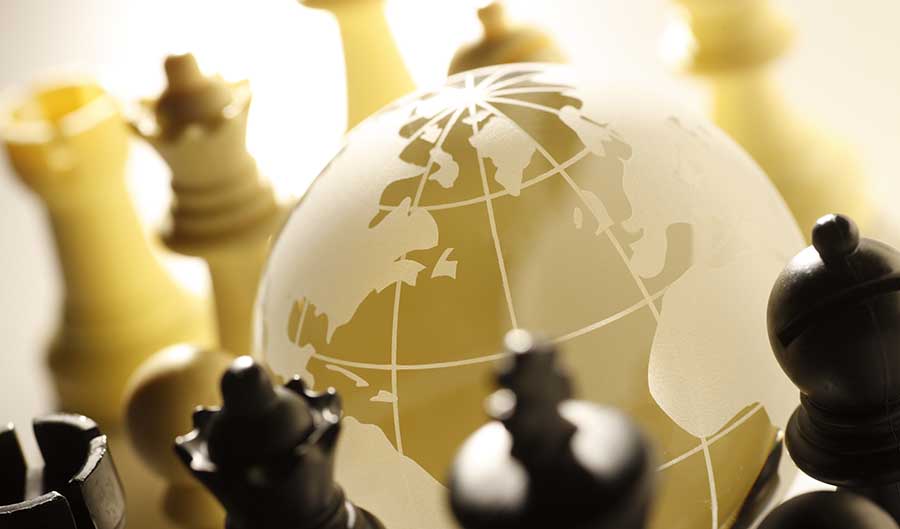Sun Chenghao, Fellow, Center for International Security and Strategy of Tsinghua University; Munich Young Leader 2025
Aug 24, 2021
Many challenges lie ahead in China-U.S. relations with regard to Afghanistan. The U.S. will most likely perceive any Chinese policies as an effort to gain the upper hand in geopolitical competition. Meanwhile, China is concerned that the chaos could spill over into Central Asia.
Li Yan, Director of President's Office, China Institutes of Contemporary International Relations
Aug 23, 2021
For a decade, the focus of the United States has shown a high degree of continuity, starting with George W. Bush and followed by Barack Obama, Donald Trump and now Joe Biden. But America is now paying greater attention to detail and adding new features to its geostrategic approach.
Richard Javad Heydarian, Professorial Chairholder in Geopolitics, Polytechnic University of the Philippines
Aug 12, 2021
The U.S. has seemingly pulled out all the stops to advance its agenda in Southeast Asia, hoping to entice countries away from China. Yet, as members of China’s neighborhood, ASEAN members will find it hard to create distance between themselves and China, literally and figuratively.

Joseph S. Nye, Professor, Harvard University
Aug 09, 2021
During the four decades of the Cold War, the United States had a grand strategy focused on containing the power of the Soviet Union. Yet by the 1990s, following the Soviet Union’s collapse, America had been deprived of that pole star. After the September 11, 2001, terrorist attacks, US President George W. Bush’s administration tried to fill the void with a strategy that it called a “global war on terror.” But that approach provided nebulous guidance and led to long US-led wars in marginal places like Afghanistan and Iraq. Since 2017, the US has returned to “great-power competition,” this time with China.

Fu Ying, Founding Chair of Center for International Security and Strategy, Tsinghua University; China's former Vice Minister of Foreign Affairs
Jul 27, 2021
The Group of Seven (G7) Leadership Summit held last June was stated to be an occasion for the Western leaders to “reestablish” the international order after the COVID-19 pandemic. It was also for the U.S. to demonstrate its return “back at the table”.
Sun Chenghao, Fellow, Center for International Security and Strategy of Tsinghua University; Munich Young Leader 2025
Yan Jin, Assistant Research Fellow, China Institutes of Contemporary International Relations
Jul 21, 2021
U.S. policy has been greatly influenced by domestic anti-Cuba forces. The idea of engagement led to the loss of two Democratic seats in South Florida — a high price. The challenge for Biden now is to find a balance that avoids incurring the wrath of a key bloc of voters.
Liu Chang, Assistant Research Fellow, Department for American Studies, CIIS
Jul 16, 2021
While the U.S. pays lip service to the notion that ASEAN is at the core of the Indo-Pacific region, U.S. actions show it is side-stepping to another direction. By contrast, China’s attitude toward Southeast Asia looks much more sincere.
Li Yan, Director of President's Office, China Institutes of Contemporary International Relations
Jul 01, 2021
The new U.S. president’s opening moves were generally steady and smooth, and some were successful. But America’s deep-rooted political and social contradictions will act as a constraint during Biden’s presidency.

Zhao Minghao, Professor, Institute of International Studies at Fudan University, and China Forum Expert
Jul 01, 2021
The U.S. and others should help developing countries solve their problems, rather than using them as a playing field in a geopolitical competition with China. Excessive competition will not lead to the better world that the American president says he seeks.
Xiao Bin, Deputy Secretary-general, Center for Shanghai Cooperation Organization Studies, Chinese Association of Social Sciences
Jun 29, 2021
China and the United States should seek to warm their relationship, even amid competition, and their leaders should meet. The international community would welcome such a meeting by the world’s largest and second-largest economies, as it would contribute to global stability.
Back to Top

- China-US Focus builds trust and understanding between the U.S. and China through open dialogue among thought leaders.
- Our Offerings
- Topics
- Videos
- Podcasts
- Columnists
- Research Reports
- Focus Digest
- Stay Connected
-
Thanks for signing up!
- Get the latest stories from China-US Focus weekly.